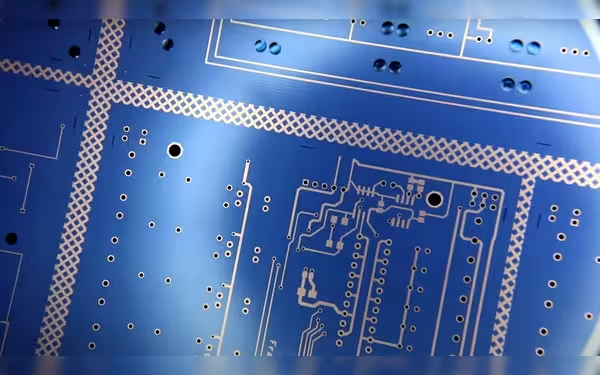Saturday, December 21, 2024 05:07 PM
Govt Eases Import Rules for Electronic Circuits
- Mandatory registration for electronic circuits discontinued.
- New rules aim to streamline import processes.
- Government seeks to boost electronics trade efficiency.
 Image Credits: menafn
Image Credits: menafnThe government has relaxed import rules for electronic circuits, eliminating mandatory registration to enhance trade efficiency.
The importation of electronic components, particularly integrated circuits, has long been a complex process for businesses in the electronics sector. For years, importers were required to navigate a maze of regulations, including mandatory registration and advance information submission through an online system. This often resulted in delays and increased costs, hindering the efficiency of trade in this vital industry. However, a recent announcement from the Directorate General of Foreign Trade (DGFT) has brought about a significant change in this landscape.
On December 2, the DGFT declared the immediate discontinuation of the mandatory registration requirement for specific electronic integrated circuits under the existing chip import monitoring system. This decision is a major shift in the regulatory framework governing electronic component imports. Previously, businesses had to pay a designated fee to obtain a registration number, which added to the administrative burden they faced. With the new directive, these compulsory registration requirements have been eliminated, potentially streamlining the import process for many.
The notification issued by the DGFT clearly states that the registration requirement has been "discontinued with immediate effect." This swift action indicates a comprehensive change in the current import protocols, aimed at reducing the administrative load on importers. By removing these barriers, the government is likely facilitating a more efficient trade environment for electronic components, which are essential for various industries, including telecommunications, consumer electronics, and automotive sectors.
While the full implications of this policy change are yet to be fully understood, it represents a notable adjustment in the government's approach to monitoring and regulating electronic circuit imports. This could lead to increased competition and innovation within the electronics market, as businesses may find it easier to import the components they need without the previous restrictions.
The relaxation of electronic circuit import monitoring requirements is a welcome development for businesses in the electronics sector. It not only simplifies the import process but also signals a more business-friendly regulatory environment. As the industry adapts to these changes, it will be interesting to observe how this policy shift impacts trade dynamics and the overall growth of the electronics market in the region.













